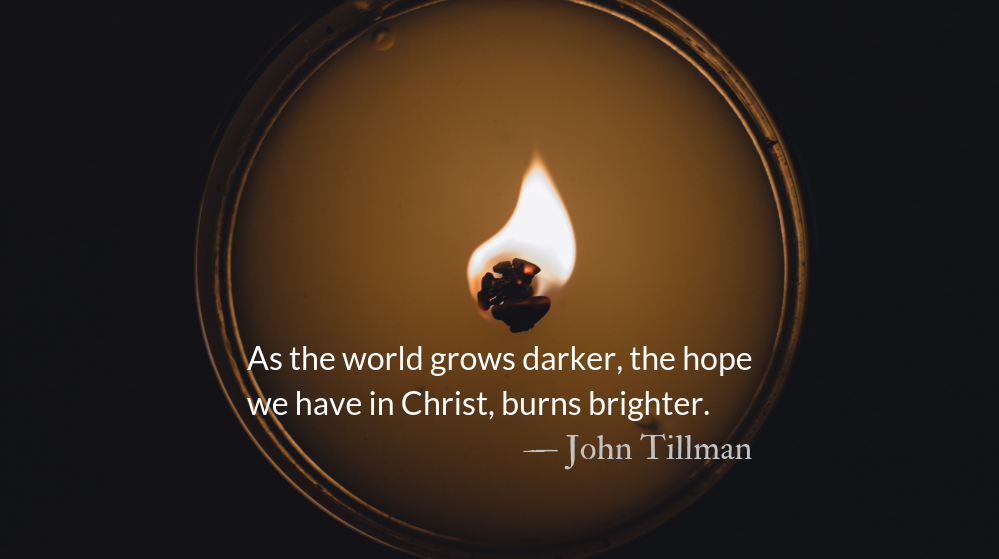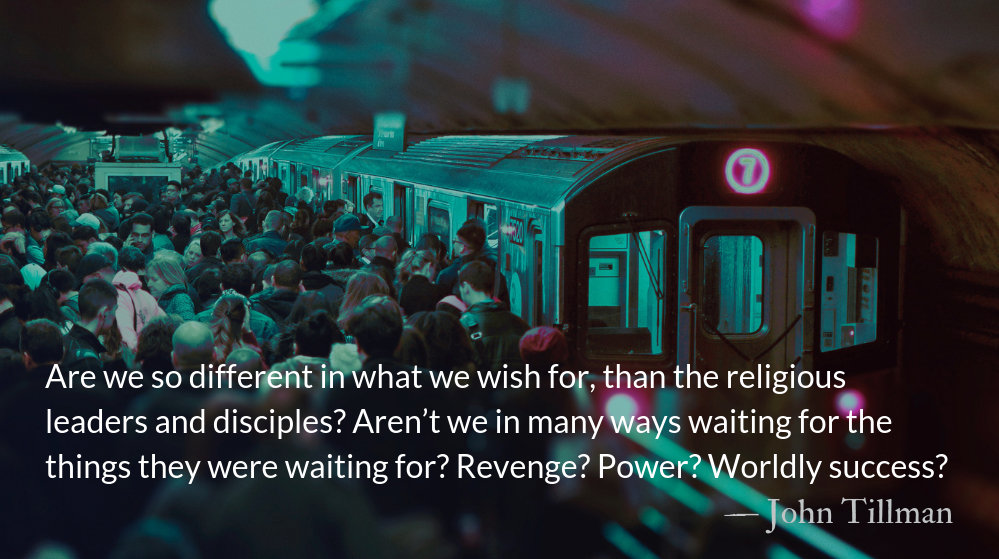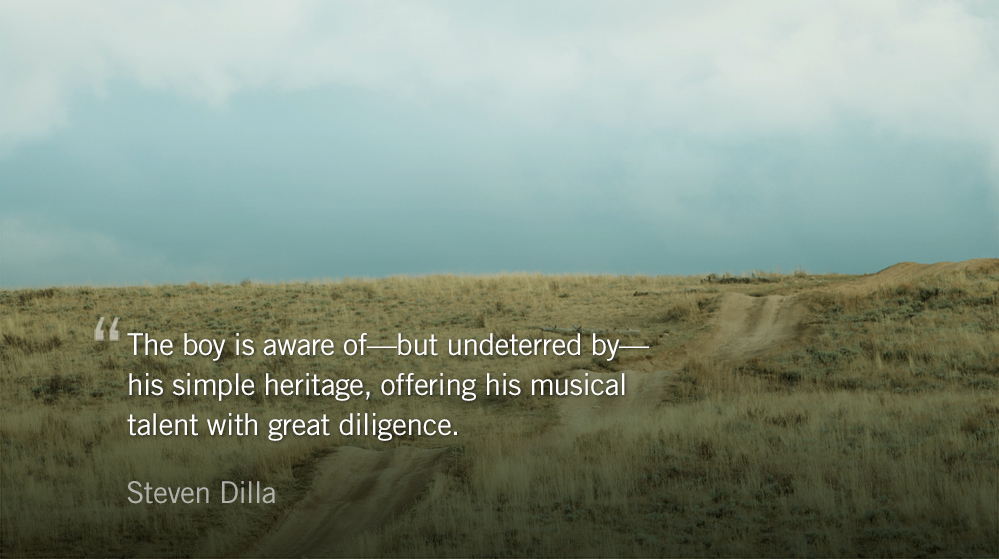Habakkuk 2.3
For the revelation awaits an appointed time;
it speaks of the end
and will not prove false.
Though it linger, wait for it;
it will certainly come
and will not delay.
Luke 21.28
When these things begin to take place, stand up and lift up your heads, because your redemption is drawing near.
Reflection: A Prayer of Hope :: Hope of Advent
By John Tillman
During Advent we trim our lamps and supply ourselves with oil that we may be ready when Christ comes.
A guided prayer using today’s readings from Habakkuk and Luke:
Lord, as the world grows darker, the hope we have in Christ, burns brighter.
When these things begin to take place, stand up and lift up your heads, because your redemption is drawing near.
I will stand at my watch
and station myself on the ramparts;
I will look to see what he will say to me
“Write down the revelation
and make it plain on tablets
so that a herald may run with it.
For the revelation awaits an appointed time;
it speaks of the end
and will not prove false.
Though it linger, wait for it;
It will certainly come
and will not delay.
We wait, O Lord, for your word.
We wait, O Lord, for your presence.
Give us your word, that we may be your herald, running with beautiful feet that bring your good news.
For the earth will be filled with the knowledge of the glory of the Lord
as the waters cover the sea.
“Teacher,” they asked, “when will these things happen? And what will be the sign that they are about to take place?”
We are impatient, Lord. Teach us endurance in the waiting.
We are anxious, Lord. Teach us to be calmed by you.
We are fearful, Lord. Teach us to trust you in all circumstances.
Trusting you is equally difficult in suffering and in plenty.
In plenty we do not trust you for we have no needs.
In want we do not trust you for we fear you caused our suffering.
No matter how much or how little we have in this world, one thing is true—it is all dust that is passing away.
May we find rest and peace by trusting our lives to you—by putting our hope in your word.
Heaven and earth will pass away, but my words will never pass away.
What are we waiting for? We wait, Lord, for your word.
We wait, Lord, to hear you speak that light will come forth.
The Lord is in his holy temple;
let all the earth be silent before him.
Let us hear from you in silence.
Let us worship you in hope.
Prayer: The Refrain for the Morning Lessons
For God, who commanded the light to shine out of darkness, hath shined in our hearts, to give the light of the knowledge of the glory of God in the face of Jesus Christ. —2 Corinthians 4:6
– Prayer from The Divine Hours: Prayers for Autumn and Wintertime by Phyllis Tickle.
Prayers from The Divine Hours available online and in print.
Today’s Readings
Habakkuk 2 (Listen – 3:20)
Luke 21 (Listen – 4:18)
This Weekend’s Readings
Habakkuk 3 (Listen – 2:59) Luke 22 (Listen – 7:58)
Zephaniah 1 (Listen – 3:09) Luke 23 (Listen – 6:39)
Additional Reading
Read More about Resting in Hopelessness :: Readers’ Choice
We fear contentment because it has become conflated with complacency. How can we rest at peace when there are great things to accomplish, proper beliefs to be held, and greener pastures in which we could find ourselves? And so we press on—unaware, performing, and restless.
Read More about Seeing the Lord :: Readers’ Choice
My eyes were blinded by the temporal, until an
eternal God shook the doorposts of my soul.
He came to me
Support our Work
Each month over 22,000 Park Forum email devotionals are read around the world. Support our readers with a monthly or a one time donation.











